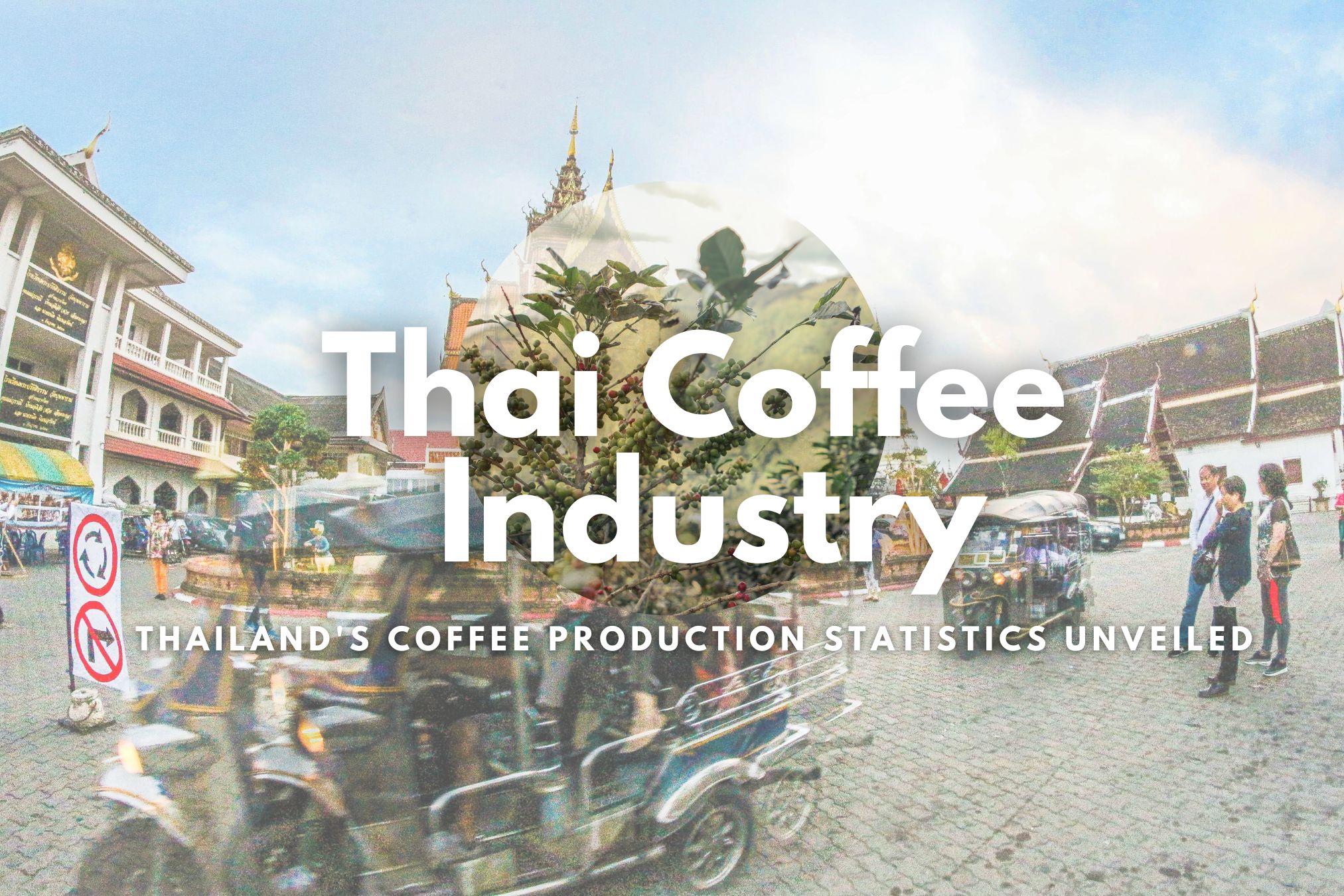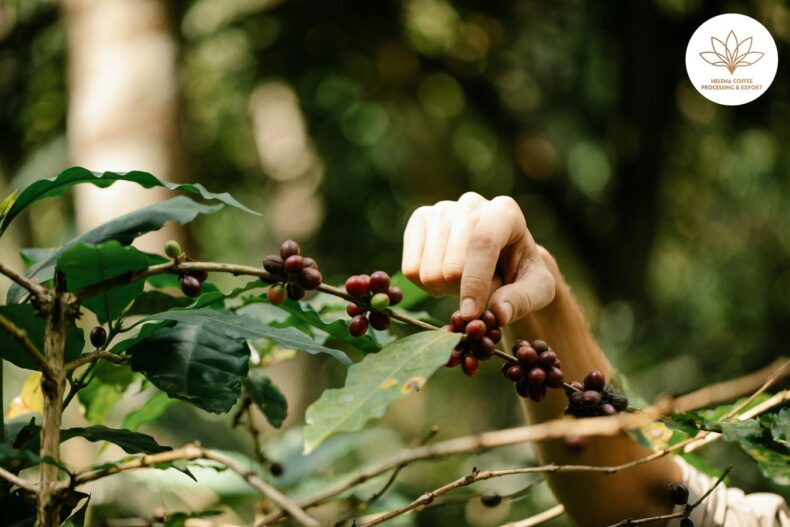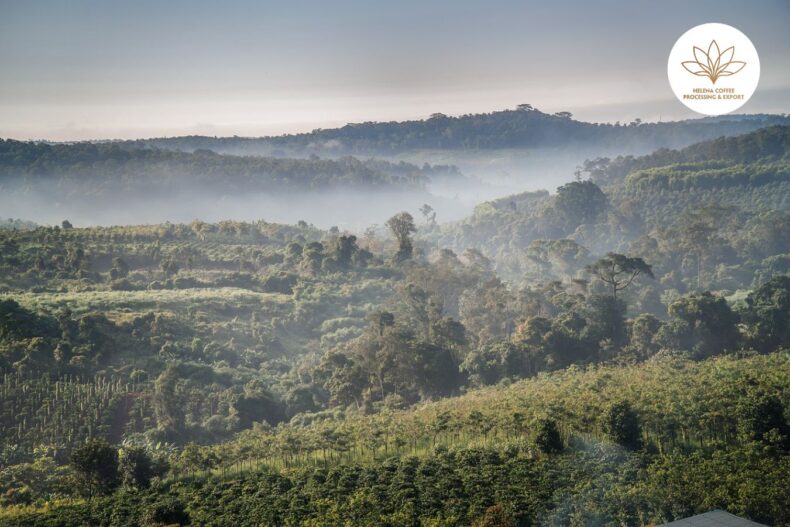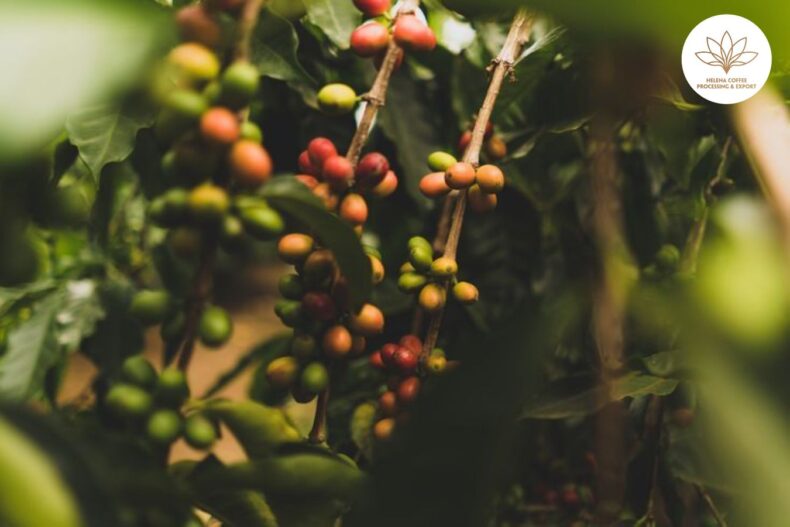
When you think of Thailand, what comes to mind? Perhaps it’s the stunning beaches, the delicious cuisine, or the rich cultural heritage. However, there’s one aspect of Thailand that is often overlooked – its thriving coffee industry. Despite its relatively small size compared to other coffee-producing countries, Thailand has made a name for itself in the global coffee market.
In this article, we’ll take a closer look at the Thai coffee industry, explore Thailand’s coffee production statistics, and gain a better understanding of what makes Thailand’s coffee culture so unique. From the history of coffee in Thailand to the challenges facing the industry today, we’ll cover it all.
The History of Coffee in Thailand
While coffee may not be the first thing that comes to mind when you think of Thailand, the country has a long and fascinating history with the beverage. Coffee was first introduced to Thailand in the late 19th century by King Rama V, who recognized the potential for coffee cultivation in the country. At the time, the Thai government was looking for ways to diversify the country’s agricultural production, and coffee seemed like a promising crop.
Over the years, coffee cultivation in Thailand has faced its fair share of challenges. In the early days, the coffee industry struggled due to a lack of knowledge about how to grow and process coffee beans. However, over time, Thai coffee farmers learned from their mistakes and developed their own unique techniques for producing high-quality coffee.
Current State of the Thai Coffee Industry
Today, the Thai coffee industry is experiencing significant growth, with coffee production increasing by an average of 10% annually. The northern region of the country is the main coffee-producing area, with the provinces of Chiang Mai, Chiang Rai, and Mae Hong Son accounting for the majority of coffee production.
The Thailand coffee production statistics are impressive. According to the Thai Coffee Association, the country produced 120,000 metric tons of coffee in 2020, a 22% increase from the previous year. Furthermore, the majority of coffee produced in Thailand is specialty coffee, which commands a higher price in the global market.
Thailand’s Coffee Production Statistics Unveiled
Today, Thailand is a significant player in the global coffee market. According to the International Coffee Organization, Thailand produces around 28,000 metric tons of coffee per year, making it the 22nd largest coffee producer in the world. Here is some other interesting Thailand’s Coffee Production Statistics Unveiled:
- The majority of coffee production in Thailand takes place in the northern part of the country, with the provinces of Chiang Mai, Chiang Rai, and Mae Hong Son being the top coffee-producing regions.
- Arabica coffee is the most commonly grown coffee variety in Thailand, accounting for around 80% of the country’s coffee production.
- The average yield per hectare of coffee in Thailand is around 700-800 kg per year, which is relatively low compared to other coffee-producing countries.
Thailand’s coffee production has been on the rise in recent years, with significant growth since 2010. In 2010, Thailand produced approximately 12,000 metric tons of coffee, while in 2020, it produced around 32,000 metric tons. This represents a compound annual growth rate (CAGR) of 10.4% over the past decade.
The main coffee-growing regions in Thailand are in the North and South of the country. The Northern regions of Chiang Mai, Chiang Rai, Mae Hong Son, and Tak account for approximately 70% of the country’s coffee production. In the South, the provinces of Chumphon, Surat Thani, and Nakhon Si Thammarat are the main coffee-growing regions.
Thailand produces mainly Arabica and Robusta coffee varieties. Arabica coffee is grown at higher altitudes and is generally considered to have a more complex flavor profile. Robusta coffee, on the other hand, is grown at lower altitudes and is known for its stronger, more bitter taste.
In terms of coffee exports, Japan is the largest market for Thai coffee, followed by the United States, Italy, and South Korea. Thai coffee has gained popularity in Japan due to its unique flavor profile and its reputation for quality. The United States is also a significant market, with demand increasing for specialty coffee.
Overall, Thailand’s Coffee Production Statistics Unveiled show that the Thai coffee industry is growing and gaining recognition in the international market. With initiatives to support the industry and a focus on sustainability and fair trade practices, the future looks promising for Thailand’s coffee production.
Challenges Facing the Thai Coffee Industry
Despite its many strengths, the Thai coffee industry is not without its challenges. One of the biggest issues facing Thai coffee farmers is climate change. In recent years, Thailand has experienced more frequent and severe weather events, including droughts, floods, and landslides. These weather events can damage coffee crops and make it difficult for farmers.
The Rise of Specialty Coffee in Thailand
While Thailand has long been a producer of coffee, it is only in recent years that the country has started to gain recognition for its specialty coffee. Specialty coffee refers to coffee that is grown and processed with exceptional care and attention to detail, resulting in a unique and high-quality product.
Today, there are a growing number of specialty coffee shops and roasters in Thailand that are dedicated to showcasing the country’s best coffee. These businesses often work directly with small-scale coffee farmers to source their beans, helping to support local communities and promote sustainable farming practices.
Factors Contributing to the Growth of the Thai Coffee Industry
Several factors have contributed to the growth of the Thai coffee industry:
- Favorable Climate: Thailand’s tropical climate provides ideal conditions for growing coffee, with ample rainfall and a consistent temperature range of 20-30°C.
- Geographical Diversity: The country’s diverse geography, with high mountains, plateaus, and lowlands, provides a range of altitudes and microclimates that are suitable for growing different varieties of coffee.
- Increased Investment: In recent years, there has been a surge in investment in the Thai coffee industry, with both local and foreign investors recognizing the potential of the industry.
- Growing Demand for Specialty Coffee: With the increasing popularity of specialty coffee, Thai coffee growers have been able to command higher prices for their high-quality beans.
Supporting Sustainable Coffee Farming in Thailand
As with many agricultural industries, coffee farming in Thailand can be challenging and often involves long hours and hard work. However, there are initiatives underway to support sustainable coffee farming in the country.
One such initiative is the Royal Project Foundation, which was established in 1969 to promote sustainable agriculture in Thailand. The Foundation works with local communities to develop sustainable farming practices and supports farmers in growing a range of crops, including coffee. By promoting sustainable farming practices, the Foundation aims to help farmers increase their income while preserving the environment.
Frequently Asked Questions
Q: What is the most common type of coffee grown in Thailand?
A: Arabica coffee is the most commonly grown coffee variety in Thailand, accounting for around 80% of the country’s coffee production.
Q: What makes Thai coffee unique?
A: Thai coffee is known for its sweet, nutty taste and low acidity, which is partly due to the way the beans are processed using the wet method.
Q: What are some of the challenges facing the Thai coffee industry?
A: Climate change is one of the biggest challenges facing the industry, as well as low yields and competition from other coffee-producing countries.
Conclusion
In conclusion, the Thai coffee industry is a fascinating and complex industry that is deeply rooted in the country’s history and culture. While the industry faces its fair share of challenges, including climate change and low yields, there is also much to be celebrated about the industry. From the unique flavor of Thai coffee to the growing specialty coffee scene, Thailand has much to offer coffee lovers around the world. By supporting sustainable coffee farming practices and promoting local businesses, we can help ensure that the Thai coffee industry continues to thrive for years to come.


